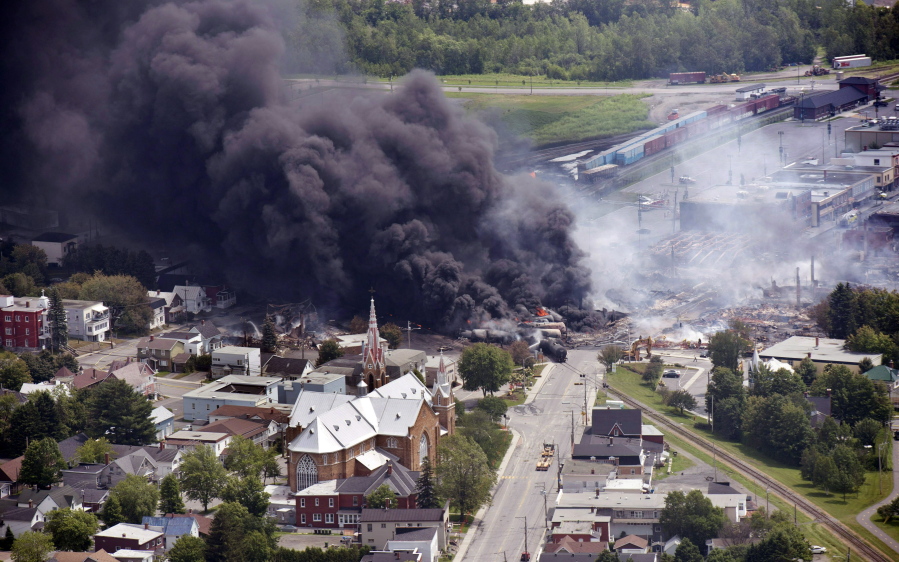A catastrophic oil train derailment in the Vancouver area could cause roughly $5 billion to $6 billion in damage, and there isn’t insurance commercially available to cover it, according to expert testimony submitted in opposition to the Vancouver Energy oil terminal to the Energy Facility Site Evaluation Council.
Insurance expert Robert J. Blackburn was hired by the city of Vancouver to consider the financial risks and whether insurance or another financial tool was available to address the risks associated with moving Bakken crude-by-rail through town.
“There is no market to cover that entire risk at present,” he said in testimony.
Blackburn is the founder of Blackburn Group Inc., an insurance company that manages over 8.1 million claims valued at $550 billion for companies in energy production and distribution, manufacturing, real estate and more.
In his testimony, Blackburn came up with the figure estimating the maximum foreseeable loss due to a single event. For the Vancouver scenario, he considered the 15 million gallons of Bakken crude oil and diluted bitumen per day or four “High-Hazard Flammable Trains” rolling through a city with about 170,000 residents alongside the Columbia River.
“This is a highly volatile compound which has been involved in a number of catastrophic accidents,” Blackburn said.
He emphasized $5 billion to $6 billion as a rough estimate. Being more precise would require data on asset values within the city and what it would take to reconstruct them, along with calculated blast zones and their locations relative to people and infrastructure.
“The costs of any incident would vary, depending on the severity of the incident, number of lives lost, proximity to areas with environmental sensitivity, etc. So, we have to also look at other events which have in fact happened,” Blackburn said.
To bolster his points, he cited the 2013 explosion in Lac-Mégantic, Quebec, which killed 47 people and blew away half of the city’s downtown area.
“Damage estimates (in that town) are now at about $3 billion, according to recent media reports. Compensation has been a major issue with that incident,” he said in his testimony, noting that the short-line railroad that hauled the oil has since filed for bankruptcy because it didn’t have enough insurance to pay the claim.
The testimony includes a BNSF Railway slide show from 2008 that says only $1 billion of coverage is available.
“Insurance is not commercially available to sufficiently protect us against catastrophic loss,” another BNSF slide said.
Blackburn said Vancouver Energy’s lease agreement with the Port of Vancouver requires $1 million and five percent of values per location in property insurance; liability insurance of $10 million per occurrence/$15 million aggregate, with specific requirements for employer liability and automobile liability of $1 million each; and pollution legal liability insurance of $25 million as an extension of the commercial general liability insurance or a separate policy isn’t enough to cover a maximum foreseeable loss.
He said no insurance would be paid out if terrorists caused a worst-case-scenario event.
Blackburn said the possible disaster he described isn’t “a black swan event” which is defined as a large-scale, highly damaging and hard-to-predict event, rather it’s a type of disaster well-known in the insurance world.
“Oil train accidents have been covered in the media, with video footage widely available,” he said. “As the insurance industry is aware of the risks, it has to account for them.”




